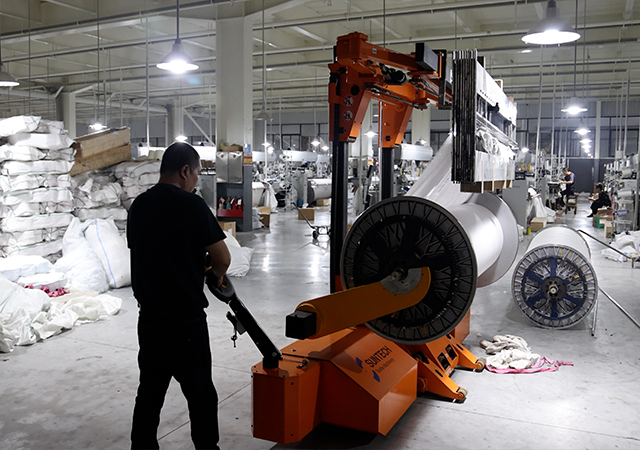The textile industry, renowned for its labor-intensive operations, has faced challenges due to the limitations of a manual workforce. Issues such as low efficiency, a high error rate, and escalating labor costs have become more pronounced, exacerbated by the recent disruptions caused by the global pandemic. Shutdowns and suspensions have led to a decline in orders, contributing to a dire economic situation for labor-intensive industries.
Labor Costs and the Vicious Circle
In 2020, non-private sector employees in urban areas experienced a 7.6% increase in average annual salary, with labor costs in the textile sector rising to 50%-60% of total costs. This trend, coupled with substandard working conditions, has led to a transformation crisis. Efforts to attract and retain talent through continuous salary hikes have proven counterproductive, plunging these industries into a vicious cycle of declining financial performance.
The Urgent Need for Automation
To break this cycle, urgent measures are required, including industrial transformation, improving total factor productivity, and enhancing sustainable development capabilities. Automation technology emerges as a crucial solution, offering opportunities for cost savings and increased efficiency in labor-intensive industries.
Embracing Automation in the Textile Industry
Textile enterprises can take several steps to transform and embrace automation successfully:
Identify Appropriate Automation Technologies:
Comprehend the applicability of distinct automation technologies for different workflows and processes. Evaluate the cost-effectiveness of automation to determine the feasibility of investment.
Gradual Approach to Automation:
Adopt a gradual approach to automation transformation, starting with simple processes and gradually expanding to complete automation. This ensures a smooth and manageable transformation process.

Professional Technical Support:
Ensure professional technical support and maintenance for successful implementation. Automation technology service providers can offer essential consultation and support.
Cultivate Technical Talents:
Invest in training and recruitment to attract and cultivate professional automation technology talents, ensuring long-term sustainable development.
Intelligent Management Systems:
Implement intelligent and data-driven management systems for real-time monitoring and optimization of the production process, improving efficiency and product quality.
Innovative Solutions: SUNTECH Textile Machinery
Recognizing the challenges faced by the textile industry, SUNTECH Textile Machinery has developed electric warp beam trolley. These cutting-edge trolleys, leveraging 50 years of technological expertise, address labor shortages by intelligently transporting cloth rolls, fabrics, weaving shafts, and warp beams. With compact size, high capacity, and swift movement, these trolleys offer flexibility, reduce reliance on manual labor, and enhance overall work efficiency.
Embracing Automation for Sustainable Growth
The textile industry's journey towards automation is crucial for its sustainability. By understanding and implementing automation technologies, textile enterprises can optimize cost control, improve environmental performance, and position themselves for long-term growth and prosperity. The transformative potential of automation technology holds the key to overcoming challenges and ensuring the competitiveness of labor-intensive industries in the global market.




